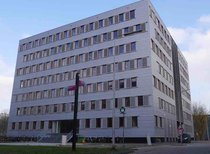UPGRADVISOR: Early Adopting Dependency Updates Using Hybrid Program Analysis and Hardware Tracing
When: July 06, 2022, 15:00 - 16:00
Where: Online
Abstract: Applications often have fast-paced release schedules, but adoption of software dependency updates can lag by years, leaving applications susceptible to security risks and unexpected breakage. To address this problem, we present UPGRADVISOR, a system that reduces developer effort in evaluating dependency updates and can, in many cases, automatically determine which updates are backward-compatible versus API-breaking. UPGRADVISOR introduces a novel co-designed static analysis and dynamic tracing mechanism to gauge the scope and effect of dependency updates on an application. Static analysis prunes changes irrelevant to an application and clusters relevant ones into targets. Dynamic tracing needs to focus only on whether targets affect an application, making it fast and accurate. UPGRADVISOR handles dynamic interpreted languages and introduces call graph over-approximation to account for their lack of type information and selective hardware tracing to capture program execution while ignoring interpreter machinery. We have implemented UPGRADVISOR for Python and evaluated it on 172 dependency updates previously blocked from being adopted in widely-used open-source software, including Django, aws-cli, tfx, and Celery. UPGRADVISOR automatically determined that 56% of dependencies were safe to update and reduced by more than an order of magnitude the number of code changes that needed to be considered by dynamic tracing. Evaluating UPGRADVISOR’s tracer in a production-like environment incurred only 3% overhead on average, making it fast enough to deploy in practice. We submitted safe updates that were previously blocked as pull requests for nine projects, and their developers have already merged most of them.
Bio: Yaniv is a post-doc at Columbia University working with Junfeng Yang. His research focuses on improving the reliability and safety of software. He is broadly interested in program analysis, systems, and machine learning. He received his PhD from the Technion, where he was advised by Eran Yahav.
